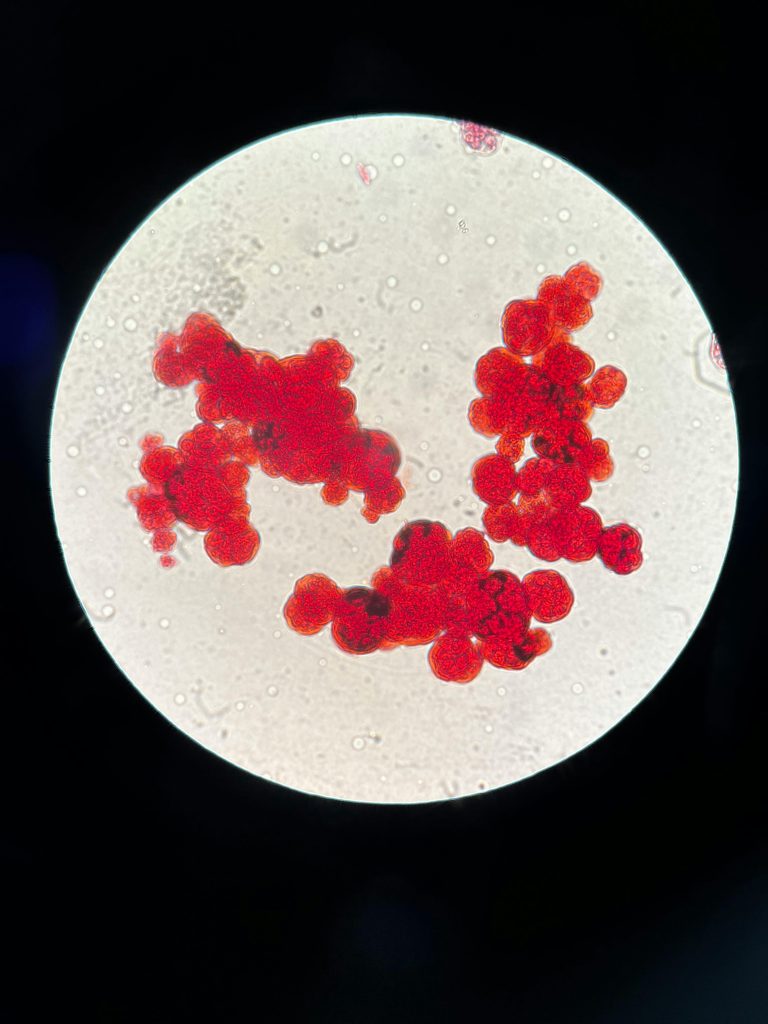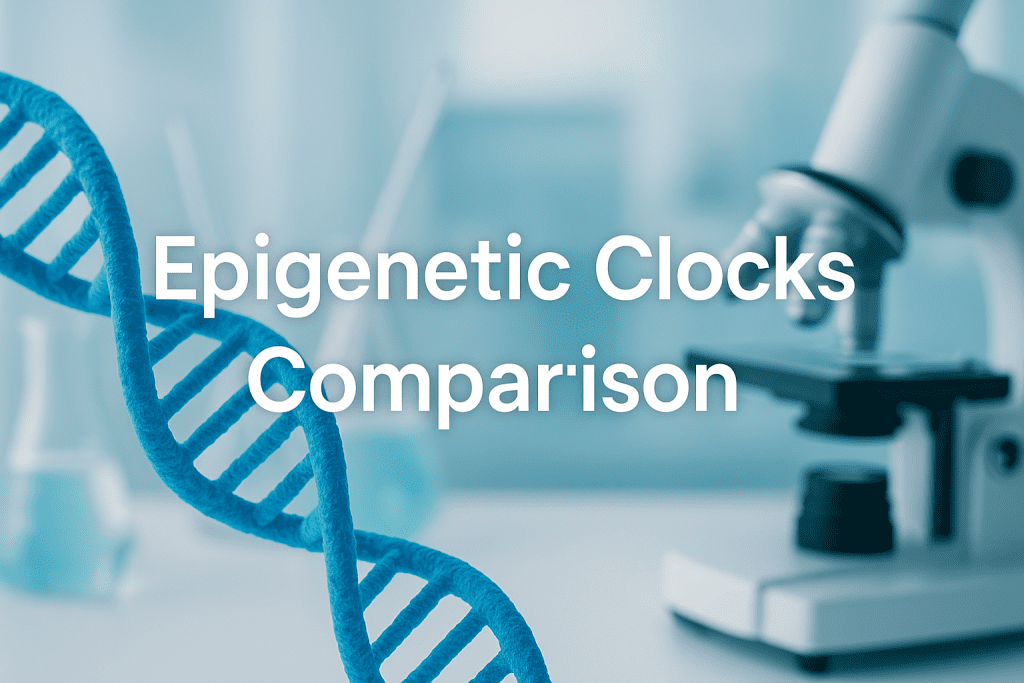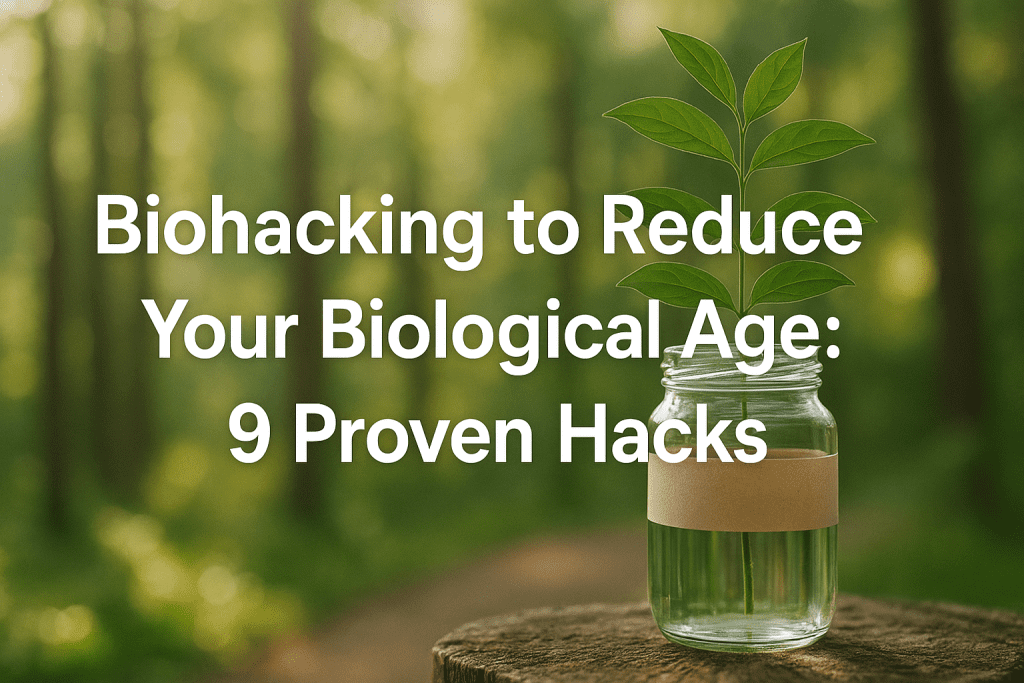
How to know if you’re aging faster than you should is a question more people are asking in their 30s, 40s, even 50s. It’s not just about wrinkles or feeling tired, it’s about what’s happening inside your cells.
You might feel “off,” slower, or just older than your peers, and there’s a real biological explanation. The science of biological age now gives us clear markers that help you measure, track, and even reverse the rate at which your body is aging.
How can I tell if I’m aging faster than normal?
If you’re feeling tired, dealing with brain fog, or recovering slower than usual, your body might be aging faster. A biological age test measures how well your cells are functioning and can confirm if you’re on the fast track.
Table of Contents
What Is Biological Aging? (And Why Chronological Age Doesn’t Matter Much)
🧠 Your chronological age is your birthday. Your biological age is how old your body acts.
Biological age is based on measurable changes in:
- DNA methylation (how your genes are expressed)
- Telomere shortening (caps on your DNA strands)
- Protein glycation and inflammation levels
- Organ-specific function like immune system aging
The biggest discovery in aging science is this: biological age can be reversed (Stanford).
You can be 45 on paper and 38 biologically, or the other way around.
7 Subtle Signs You’re Aging Faster Than You Should
⚠️ If you’re wondering whether your body is aging too fast, look for these science-backed signs: many of which show up years before chronic disease.
🧠 1. Persistent Brain Fog or Memory Slips
Can’t recall names like you used to? Lose your train of thought mid-sentence? Cognitive slowdown is one of the earliest signs of biological aging, linked to methylation changes and chronic inflammation in the brain.
🧬 Insider marker to watch: BDNF (brain-derived neurotrophic factor) lower levels = slower brain recovery.
💤 2. Poor Sleep Recovery
Waking up tired despite 7–8 hours? A disrupted circadian rhythm can accelerate cellular aging and damage mitochondria: your body’s energy producers.
💡 Scientific tip: Try bright light within 30 minutes of waking. It re-aligns your internal clock and reduces cortisol misfires.
🔥 3. Chronic Inflammation or “Silent Pain”
Mild but constant joint stiffness? Puffiness? High CRP on labs? Your body may be in a state of low-grade inflammation, a known trigger of accelerated immune aging.
🧬 Trackable marker: Glycan profile (as measured by GlycanAge) reflects inflammation-linked immune changes.
🏋️♀️ 4. Loss of Muscle or Slow Recovery
Even with workouts, are you feeling weaker or sore for days? That’s often due to increased catabolism and slower mitochondrial repair.
⚠️ Insider biomarker: Low grip strength and reduced VO₂ max have both been correlated with higher biological age.
🍩 5. Blood Sugar Swings or Belly Fat
Gaining weight in the belly, feeling drained after meals, or noticing high fasting glucose? Insulin resistance increases methylation damage and speeds aging.
🧬 Simple fix: Try walking 10–15 minutes after eating, it significantly reduces post-meal glucose spikes.
🧪 6. Lab Panel Red Flags (That No One Explains)
You get your blood work done. It’s “normal,” but your triglycerides are creeping up, your HDL is dropping, and your hs-CRP is elevated. These are early metabolic signs of biological wear and tear.
🧬 Test to consider: TruAge or DoNotAge offer pace-of-aging reports that correlate with these subtle blood markers.
🥱 7. Lack of Motivation or Emotional Flatness
When hormonal aging starts, you might not feel sad, just flat. Low dopamine, low testosterone, or cortisol dysregulation can impact drive, libido, and emotional response.
🧬 Tracking this: Morning cortisol and DHEA levels are often used to assess adrenal aging.

How to Know If You’re Aging Too Fast (Accurately)
🧪 Instead of guessing, you can now test your biological age from home.
- ✅ TruAge (blood test) : most accurate for methylation, organ aging, and telomeres
- ✅ GlycanAge (blood) : best for immune and inflammation tracking
- ✅ DoNotAge (saliva) : general wellness markers + memory, vision, inflammation
🔗 See our biological age tests comparison here
These tests give you actual biological age according to epigenetic markers: your pace of aging, and even identify which systems and organs are aging faster (like your brain or heart). Most people retest every 3–6 months after making lifestyle changes.
Can you really Reduce your Biological Age Naturally?
🧬 Once you know your biological age, the next step is action. These are simple, science-backed habits you can start today:
- Lift weights 2–3x/week 🏋️
Preserves mitochondria, bone density, and reverses sarcopenia. - Zone 2 cardio (150 min/week) 🚶
Boosts cardiovascular health and VO₂ max, a strong longevity predictor. - Get 7.5–8.5 hours of sleep 😴
Deep sleep helps methylation repair and lowers inflammation. - Eat within a 10-hour window ⏰
Time-restricted eating improves insulin sensitivity and reduces epigenetic aging. - Use creatine (3–5g daily) 💪
Shown to support brain aging, especially in vegans and older adults. - Reduce ultra-processed foods ❌
Linked to telomere shortening and chronic inflammation. - Cold exposure 3x/week ❄️
Improves brown fat activation and cellular stress resilience. - Take Omega-3s 🐟
Backed by dozens of studies showing Omega-3 slower telomere erosion. - Support gut health 🧻
Dysbiosis increases systemic inflammation and speeds aging. - Track. Adjust. Retest. 🔁
Use your biological age results to refine your plan, not guess.
How to Slow Down Your Biological Aging
✅ Knowing how to know if you’re aging faster than you should isn’t about paranoia, it’s about awareness.
We now have tools, data, and science to help you catch aging early, and do something about it.
Take action before symptoms become problems: Learn how to reduce your biological age in our blog.
How to Slow Down Your Biological Aging in 5 Steps
Measure
Start with a reliable biological age test like TruAge, GlycanAge, or DoNotAge. These tests analyze your blood or saliva to calculate how fast your body is aging at the cellular level.
Analyze
Review your results closely. Look for key markers like immune system stress, methylation speed, inflammation, or glycan patterns. This tells you which areas of your health are aging faster than normal.
Target
Pick 1–2 focus areas to improve. That could be sleep, muscle strength, blood sugar, or chronic stress. Don’t try to fix everything at once, focus on what moves the needle.
Track
Stick to your routine for at least 90 to 180 days. Use a journal, a wearable tracker, or simply pay attention to how your energy, skin, mood, and recovery change over time.
Re-Test
Repeat the test every few months. Compare results and fine-tune your protocol. If your biological age is improving, keep going. If not, adjust and re-optimize.

FAQs
How do I know if I’m aging faster than I should?
You might be aging faster if you’re experiencing early signs like fatigue, memory issues, muscle loss, or poor sleep. Testing your biological age can confirm it.
What causes someone to age faster than normal?
Factors like chronic stress, poor diet, lack of sleep, smoking, and inflammation are major reasons people age faster than their chronological age.
Is aging faster reversible with lifestyle changes?
Yes, many signs of accelerated aging can be reversed with regular exercise, better sleep, targeted supplements, and improved diet and recovery habits.
What is the best way to test if you’re aging too fast?
Biological age tests like TruAge, GlycanAge, and DoNotAge use blood or saliva to measure your pace of aging and give personalized health insights.
Can stress really make you age faster?
Absolutely. Chronic stress increases cortisol and inflammation, both of which speed up DNA methylation changes linked to faster biological aging.
How often should I check my biological age?
Every 3 to 6 months is ideal if you’re making lifestyle changes. This helps track improvements and adjust your anti-aging strategy over time.
Created by SimplyAntiAging.com’s Editorial Research Team
Reviewed and updated for accuracy in January 2026.



